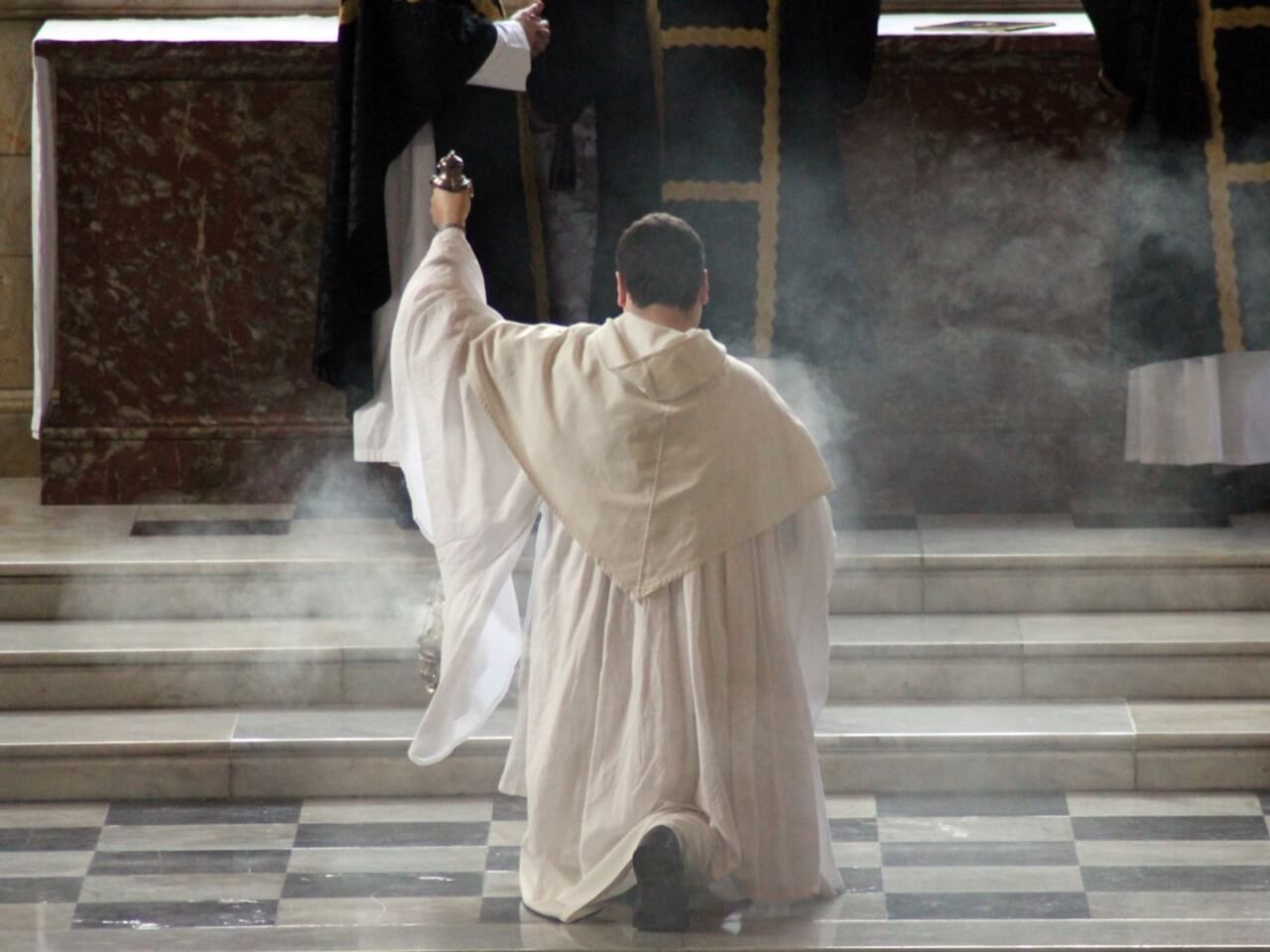As a young Marine Corps lieutenant, I was once told by a commanding officer that “words have meanings.” This advice or admonition came on the heels of an operations order I had given to my infantry platoon. The Captain had been observing, and his comments implied he was neither impressed by nor appalled at my attempt to explain to my Marines what we’d be doing during the upcoming exercise. He was simply encouraging me to be mindful of my choice of words, to be a bit more concise, ultimately to be a bit more efficient.
1P5 contributor Anna Kalinowski wrote an article last year in which she lamented the sad reality of foul language, even within traditional circles: “What tragic irony it is when the faithful sing the sacred words of the Holy Mass, only to utter profanity in trivial jests moments later! They utter profanity with the same tongues that have, by the benevolence of God, joined the choirs of angels in praising Him at Holy Mass.” It seems that, like my former commanding officer, Ms. Kalinowski knows that, indeed, “words have meanings.”
While words having meaning isn’t incredibly contentious, our current cultural climate is one in which these meanings can and do change over time. One of the great tricks of the devil and his ilk is to encourage the evolution of words so that meaning is debated and intent is confused. This reality is something that any adherent of the Latin Mass should be capable of articulating when questioned about fidelity to or love for the TLM. God, in His providence, chose a dead language as the preferred language of His Church not by accident, but because death is often the harbinger of life when the Almighty is concerned. God has always known what my commanding officer came to know and teach: words have meanings, and He wanted a hedge against modern man’s unique ability to alter reality, to confuse words, and to create gray areas to affirm questionable actions.
As we proceed through the Christmas season, the meanings of the colors that have been part of the past several weeks help make the point. The seasonal colors of green, red, and gold represent life, death, and glory. More specifically, they represent the crib, the cross, and finally the crown that awaits those who adhere to the Faith. In short, these colors are not arbitrary, they are not random, and they can’t be changed without changing what they represent. To decorate one’s home in purple, baby blue, and orange would not only seem strange to one’s neighbors, but ultimately begin to sever the relationship between decorating for the Christ Child at Christmastime and ultimately worshiping the Word made flesh over the course of a lifetime.
I recently met a young artist, Norman Faucheux, who is focused on sacred and religious art. He and his wife are both relatively new to the Latin Mass, but their “conversion” now has begun to affect his art and how he views what constitutes “sacred.” As an artist, Norman knows that his art is supposed to have meaning; it is supposed to be more than just capturing or representing an image. For him, I suppose the Latin Mass makes a great deal of sense because it represents the Church’s supreme effort at conveying the supreme mystery that is Holy Thursday, Good Friday, and Easter Sunday. The meaning behind so much of what takes place on the altar is not lost on Norman — and, as we discussed recently, it is not lost on children, either. As a father, I don’t need to convince my children that what takes place on the altar is important: it looks, smells, and sounds important.
Because the Mass is not just words, but also incense, solemn movements, eye-catching vestments, etc., it should come as no surprise that followers of the Latin Mass sometimes do a poor job “evangelizing” and bringing others to the Mass. Typically, we end up “telling” people how great it is rather than living our lives in way that “shows” them how great it is. My experience has been that those who know the least about the Mass are often the ones showing up for Mass with their neighbor who hasn’t been inside a Catholic church in twenty years. While my observation hardly qualifies as a scientific finding, there is something here that all in the TLM camp need to understand: it is not our ability to wax poetic about the merits of the Mass that typically draws people to it, though of course there are writers, professors, and priests who have been able to do so. Rather, for most of us, it is the manner in which we live our lives that draws or repels.
Be assured, I’m not pointing fingers as I write this. Rather, I’m simply trying to encourage readers to realize how we have something close to a sacred duty to better manifest the reality of the Mass in our daily lives. From not arguing with umpires at youth baseball games to avoiding movies where the Third Commandment is trampled upon, we have to be different.
Words do have meanings, but so do our actions. While the concept of a sin is almost nonexistent in 21st-century America, there is one act that comes pretty close: being a hypocrite. When we extol the virtues of the Mass on one hand and then gossip about a neighbor on the other, we give anyone within earshot ample reason to believe that the power of the Mass is all in our heads.


